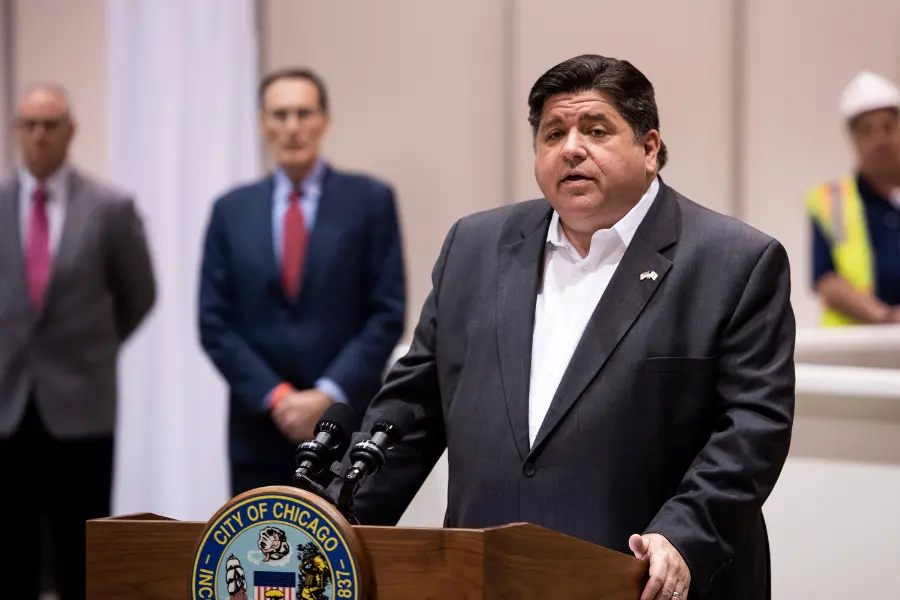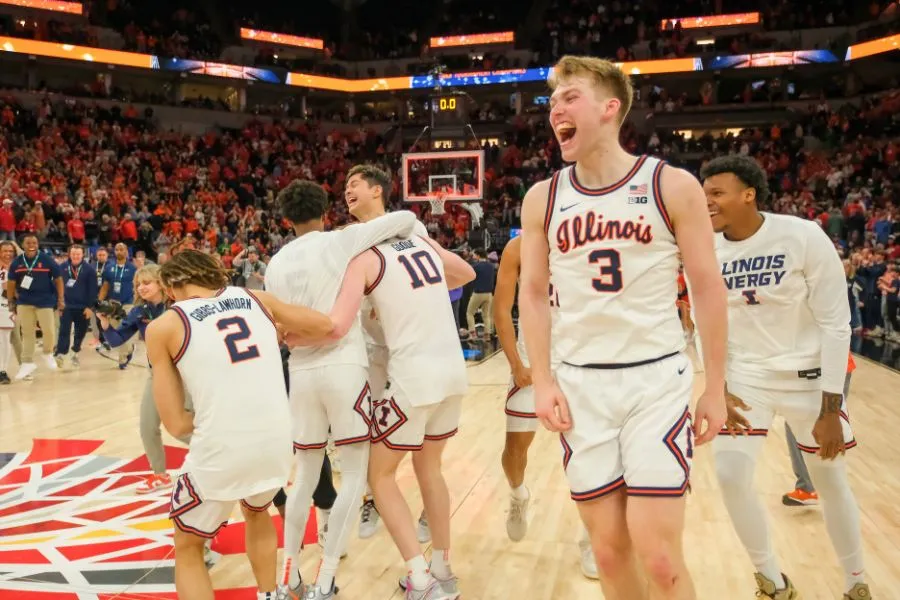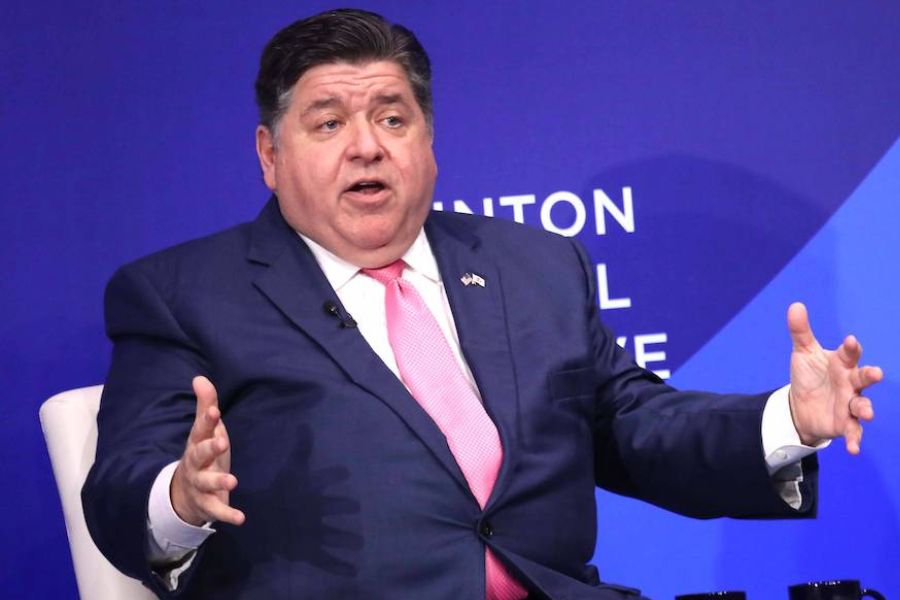The revenue – thus including tax revenue – from such gambling is larger than from its more-publicized “cousin” sports betting, yet at the same time most state legislative bodies have declined to bring the new form of legal gambling to their state.
After almost a decade of near-stagnation since Delaware and New Jersey each rolled out online casino gaming in late 2013, gaming industry leaders have struggled to figure out how to change the dynamics.
But at the recent Craig-Hallum Online Gaming Conference, DraftKings CEO Jason Robins offered a potential path forward if the right state or states push forward for online casino play.
“I think if you see like in New York or in Illinois or something like that, I think that’s going to unlock some other ones in the region as well,” Robins said. “So, we’re very bullish on iGaming.”
“It’s a very significant chunk of our revenues, and that’s only in five states,” Robins added. “I mean, it’s going to grow. Really for me, iGaming is kind of the unlocked – or the hidden, not yet unlocked, I should say – gem of DraftKings. I wouldn’t be surprised if it’s bigger than sports [betting], at some point, for our business.”
“It’s something that we intend to continue to compete in and try to gain [market] share,” Robins told moderator and gaming industry analyst Ryan Sigdahl. “Also, I’ve been surprised how much share we’ve been able to gain there.”
One of the surprises for many industry observers has been how daily fantasy sports industry giants DraftKings and FanDuel not only seamlessly transitioned to mobile sports betting in dozens of legal states, but also to attracting those customers to cross over to online casino gambling where legal in states such as Michigan, Pennsylvania, and New Jersey.
The prevailing expectation had been that brick-and-mortar casino giants such as MGM and Caesars could dominate the online casino market. But it has turned out that the younger demographic of DFS players and sports bettors tends to be a better fit for a transition to online casino play compared to a generally older brick-and-mortar casino customer who might not be as eager to try the online versions of their favorite slot machines and table games.
In New Jersey in the first 10 months of 2023, online casino tax revenue amounted to $235.7 million – compared to $150.9 million from brick-and-mortar tax revenue and just $49.9 million from a combination of mobile and retail sports betting taxes.
Why does Robins think there has been so little progress in various statehouses in expanding online casino launches beyond the six states that also include West Virginia, Connecticut, and Delaware?
“I think a lot of people are sort of sleeping on it a little bit, and maybe are just focused on how big the sports side can be – and not realizing the iGaming side can make the business even larger,” Robins suggested. “And I think it’s something that also maybe because there wasn’t a lot of momentum in the last year or so on the legislative side, people have kind of forgotten about it a little bit. But I think it’s only a matter of time.”
Proponents of the expansion of legal iGaming point to the massive influx of federal dollars into state budgets during the COVID-19 pandemic era as having left legislators content with the status quo. But as that “cushion” dissipates, online casino revenue could be a rare new source of tax dollars coming into state Treasuries.
Illinois Online Casino Gaming Efforts So Far
Elected officials in the Illinois state Senate and House of Representatives chambers introduced Illinois online casino bills in 2021 and again in 2023. But none of those efforts revealed much progress before the legislative sessions ended in each spring.
Rep. Edgar Gonzalez Jr., who has spearheaded such efforts, has said he is hopeful his bill will gain traction as the legislative session resumes in early 2024. The unusual two-year session in Illinois means that Gonzalez does not need to reintroduce his bill next year.
Another bill filed by Illinois state Sen. Cristina Castro mirrors the Gonzalez bill in imposing a 15% tax on adjusted gross gaming revenue from online casino operators – the same as New Jersey’s model – along with an initial charge of $250,000 for an online casino license.
With a state population about one-third larger than New Jersey – which is on pace to collect almost $300 million in online casino tax revenue in 2023 – it’s tempting to project that Illinois, then, can project more like $400 million annually in taxes from the new form of legal Illinois online gambling.
But Illinois has an unusual feature that New Jersey does not – ubiquitous Video Gaming Terminals (VGTs) located in literally thousands of truck stops, convenience stores, restaurants, and taverns all over the state. The 45,000 or so VGTs in Illinois in 2022 generated more than $900 million in taxes for the state and to local municipalities. That’s more than double the $365.5 million that the state’s 15 casinos paid in taxes.
Not only might many Illinois residents not bother signing up with online casino apps when they can continue their routine of playing VGTs right down the street, the VGT lobby also has earned considerable sway in the Springfield statehouse because of those massive tax dollars generated.
So Robins might be better off staking his hopes with New York, which is facing severe budget issues and which has state Sen. Joseph Addabbo Jr. and Assemblyman Gary Pretlow trying to double down on their successful passage of online sports betting that launched in 2022.
New York budget experts forecast a $4 billion shortfall in 2024, while Addabbo and Pretlow offer a perhaps-rosy projection of up to $1 billion in first-year tax revenue from online casino gaming legislation. That may seem like music to the ears of lawmakers leery of raising traditional taxes on state residents.






